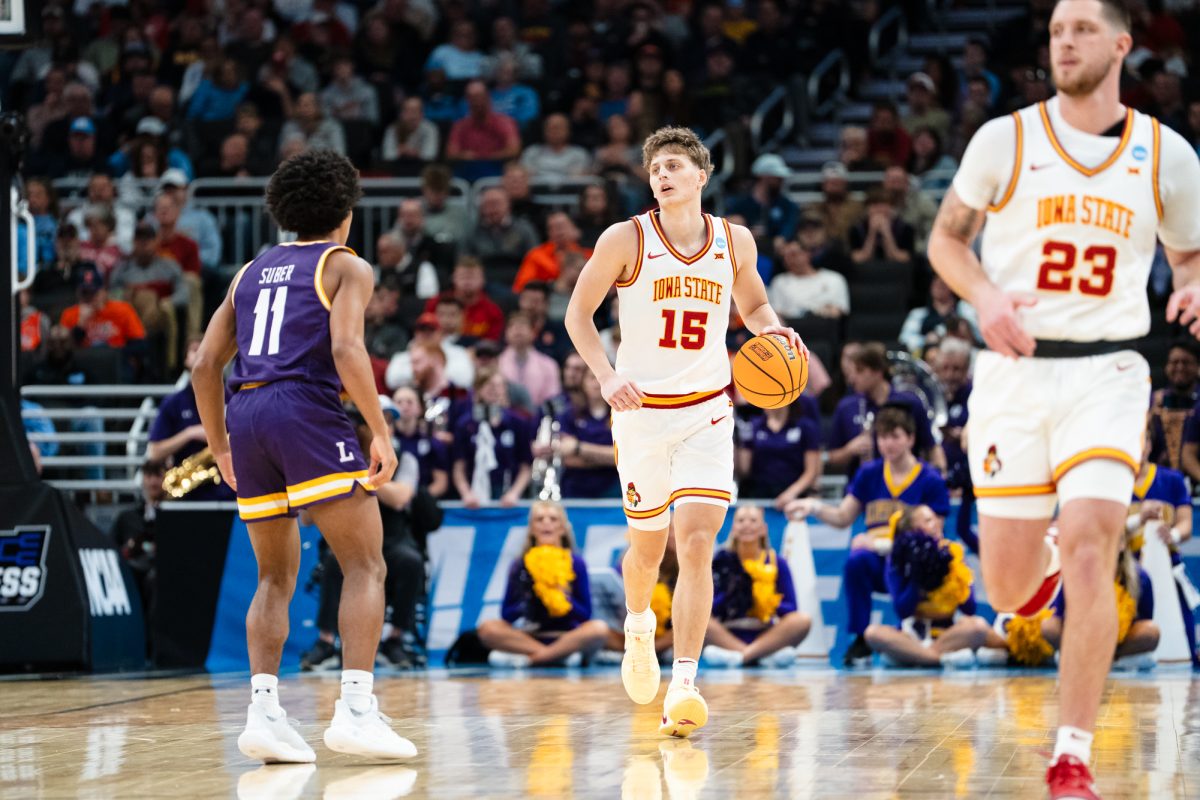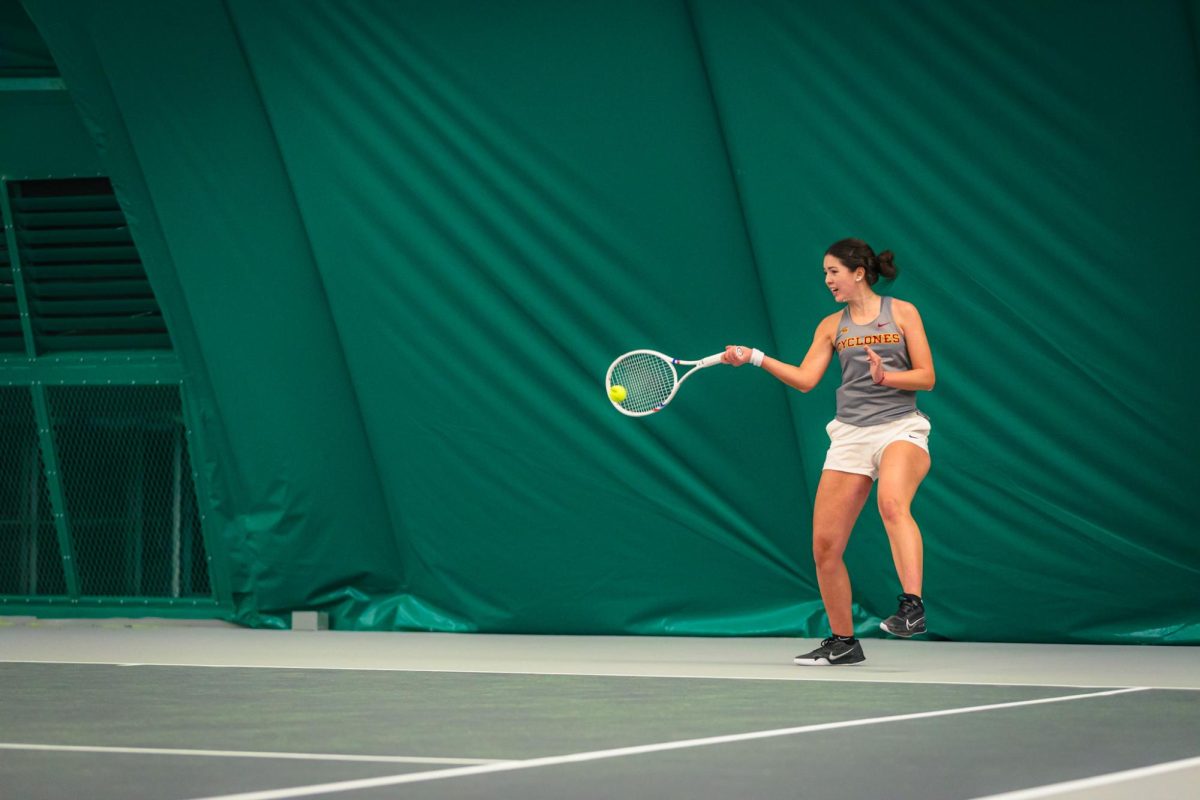BioBus updates
April 30, 2011
ISU’s BioBus has been making significant progress by producing their first batch of biodiesel to CyRide last week.
BioBus has been processing its fuel from leftover vegetable oil collected from UDCC, which is then given to CyRide bus 18, to be fueled with B-20 fuel.
“We’re really at a trial period right now, we’re going to put in only 5 gallons at a time, [CyRide’s] maitenance guy will look at the bus each week and say ‘Ok, we don’t see a problem’ and hopefully we’ll be up to 10 gallons a week,” said David Correll, president of BioBus.
50 gallons a week is what Correll would like to get to by next semester.
“We have the production, we have the oil to use, it’s just a matter of getting us up to the amount that we want,” said Lauren Johnsen, freshmen in jorunalism and mass communication.
The next big step is getting CyRide 18 to run on B-100, 100 percent biodiesel.
“I think in the nearby future, our intermediate goal would be to completely supply that bus, it would probably still be mixed with conventional diesel fuel but we would be consistently supplying high blends to that bus,” Correll said.
“In the longer term future, we would love to supply CyRide’s whole fleet but that could be more than a year down the road.”
The biodiesel itself is made within a processing unit, where the vegetable oil heats up and ferments. Students from BioBus will be spending 3 to 4 hour shifts monitoring the production of the biodiesel within the ground floor laboratory inside the Biorenewables building.
The vegetable oil that’s placed inside the processing unit is heated up to about 120 degrees fahrenheit, the oil is then mixed with methanol and sodium hydroxide, as the mixture reacts, glycerin forms at the bottom of the tank. The glycerin then is removed from the mixture and replaced with water to wash out any impurities, this is done two to three times before the remaining water is converted to steam and the leftover product is clean biodiesel.
“What we try to do in a nutshell is chemically remove the glycerin from the oil and what is left is a diesel light fuel but it’s green and burns much better,” said Bernardo Del Campo, vice president of BioBus.
Producing the biodisesel takes up to eight or more hours, he said.
“One of the great advantages of biodiesels is that unlike conventional diesel, it’s non-toxic which is great as far as storage and costwise, we’re giving it to them for free,” Correll said.
In the meantime, Johnsen has been working on social media outreach, educating the science and benefits of alternate fuels to ISU students and the Ames community.
“The CyRide buses do drive in all of Ames, it’s a community of Ames thing and we want to keep our outreach open,” she said.
Johnsen hope to affiliate with other environmental groups on campus, Correll would like the idea to collaborate all sustainable transportation student organizations into one group.
“Another one of our goals is to connect with other environmental organizations on campus, to really bring the groups together because we’d each be good resources for eachother,” Johnsen said.
This summer BioBus will be driving throughout the Iowan community to educate different schools about their program.






